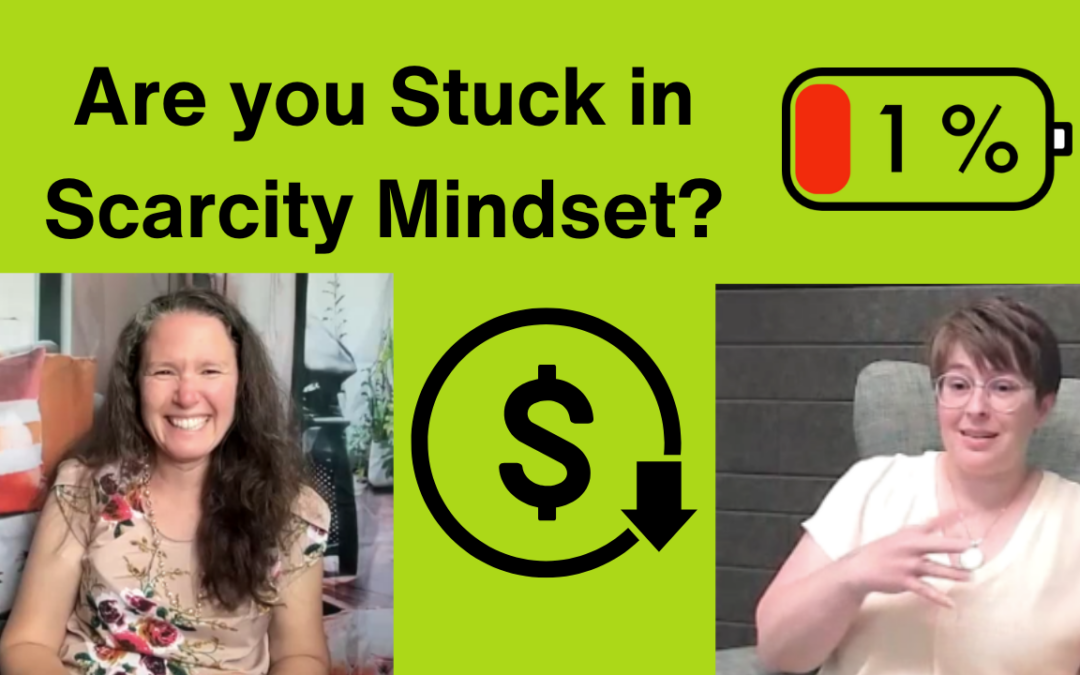Most of us don’t realize how much our financial decisions are shaped by unconscious beliefs. Whether it’s cultural conditioning, childhood messages about money, or deeply ingrained emotions like shame and fear, these hidden narratives influence the way we spend, save, and think about wealth. In this conversation, I sit down with Dr. Robin Norris to unpack the psychology of money and explore how financial therapy helps us understand how unconscious money beliefs shape financial decisions and self worth.
Watch the video here. Read the transcript below:
I’m Maggi Colwell, an art therapist and Jungian. Here we explore archetypal images, personal symbolism in art and dreams, and what your psyche is trying to tell you. If you’re ready to dive into your inner world, you’re in the right place. Subscribe and let’s begin.
I am Maggi Colwell with Chiron Art Therapy in Columbus, Ohio.
And I’m Dr. Robin Norris with Windward Optimal Health in Northern Virginia.
We’ve been having an ongoing conversation for a couple of years working together on our business and mindset work. It’s that idea of surrounding yourself with people who raise you up, motivate you, and inspire you. And we realized it made sense to bring this conversation to others as well.
The Focus of This Video
In this video, part three of four of our financial therapy series, we’re diving into how financial therapy helps uncover unconscious beliefs about money and emotions tied to financial decisions, and how our personal history and cultural background shape the way we think about money. We’ll also explore how internalized beliefs about self-worth influence financial choices.
Recap of the Series
So this is our third video of a series where we’re talking about financial therapy. In our first video, we talked about the difference between financial planning and financial therapy. In our second video, we got into a little bit about when a financial planner should call a therapist for help.
And now we’re gonna talk more about some of the aspects that we do with emotions and the unconscious pieces—getting down into those taboo parts of money.
And there’s a lot of it.
The Taboo Nature of Money in Therapy
And this is why financial therapy is becoming its own specialty. I found that some therapists who have not spent a lot of time working on their own money mindset issues or don’t have training in the financial aspects of therapy or the psychology of finances are also kind of hesitant to go into money and feel that it’s out of scope or impolite.
And it becomes a taboo subject in therapy too. The things you can’t talk about, you can’t change. And I’ve found that money is woven into everything else in our life.
Archetypally, money is energy. So if there’s an energy pattern in one part of your life, there’s an energy pattern in another part, and the piece that you’re least likely to talk about—because it’s too taboo, it’s got too much emotion or shame around it—that’s the piece that’s gonna have the most locked-up energy.
Money and Everyday Decisions
I agree that it’s in everything. And just even recently, I was at the grocery store and I actively decided to calculate what the cost difference would be to buy just three items. And it was blackberries, blueberries, and strawberries.
But if I wanted to buy them organic versus non-organic, the cost difference was going to be $8.64. For many, many, many, many Americans, and actually globally, that is more than an hour’s worth of work. And so it then becomes—can I even afford to feed myself nutrients?
Which can also get at another spot in energy. And so there were definitely feelings that I know I had when I was standing there, not just about my own decision-making, but the availability that other people have to make these decisions as well.
The Impact of Personal History on Money Mindset
That’s so funny that that’s the example that you lead with because my memories immediately go to picking strawberries, blueberries, and then wild blackberries.
So I have incredibly rich memories of blackberries being free… and a past history of my mom saying, “We can’t afford to buy blackberries ’cause they’re too expensive.”
So, you know, immediately we’re talking about social strata. We’re talking about economic privilege. We’re talking about the availability of food and scarcity.
And then if we are trying to feed additional people than just ourselves, you know, are we employed? And if we are employed, are we going to work every day never feeling like we are enough because we are not making enough money to be able to make these decisions?
So even when you learn something new, you may not be able to implement the something new that you learned.
The Gap Between Knowledge and Implementation
Not sure I understand that. Go into that a little bit further.
So I learned about different food choices many, many years ago, but I didn’t have the budget to implement those.
Okay. At all. Right. I still had so much debt. I went into every piece of college debt you could possibly go into because I was ushered into that storyline of “college debt is good debt.”
And so that didn’t matter at the end of the day, whether it was good or bad. It was a number. It was still a number that I had to fulfill my obligation with every month.
And that number was set into a ratio of my earnings, and that ratio to debt earnings space left me with how much I had to spend on food, shelter, clothing, fun.
And so that part of who we are really is, I believe, where the taboo of money lies—in who we would like to be versus who we’re defined by in terms of the money that we may have.
And when those things are misaligned, it’s time to do some—in my world, it would be some art about it. Seeing an image of who I want to be, an image of who I am, an image of who I came from, and then doing separate images or little sculptures of what each one of those feels like when I’m also considering my financial health.
Examining Emotional Reactions to Money
Right, right. Yeah. And in my cognitive behavioral world, it’s, you know, go out and try to write something down. Try to get an index card and make a note of that feeling and when you had it.
Keep track of how often that feeling comes up for you because all of this is important to be able to discover and uncover what might be holding us back from our dreams, from making our reality be closer aligned with our dreams.
Money, Shame, and Internalized Beliefs
A little bit about people who think that money is dirty or money is bad or that money is sinful. ‘Cause I feel like a lot of times there’s like, “I don’t wanna deal with it, I just wanna throw it away. Like, I don’t want this as part of my life because, you know, then I’m lesser.”
Cultural and Family Influences on Money
I would say money onto itself—or currency of any sort because we haven’t always used a dollar or a coin in different cultures. We might have used a cowry shell or a feather—onto itself, it is neutral, the item.
But what we place onto it is the value. And what others around us place onto it is the value.
The Burden of Financial Expectations
We take in as automatic things we’ve never questioned, never examined. Those are the things that are kind of our unconscious reactions, and it takes a while to get to a place where you can dismantle those.
Another thing that I was thinking about is when you were saying, “I should do this” or “I should do that.” Anytime that we’re saying “should,” I find that a lot of times it’s internalized shame too.
Of saying, “I am supposed to be this, and I’m not.”
Money, Guilt, and Shame in Different Contexts
Another place that I see those emotions that band together come up is when somebody’s got an inheritance.
From a death where there is maybe an expectation related to, “Am I living up to my mother’s memory? Am I doing what my father would expect of me?”
And it’s wrapped up in guilt and shame.
Conclusion
So today I think this section was really neat. Thank you, Robin, for diving into this project with me.
In our final video, we’ll talk more about emotions and specifically how shame drives our financial decisions.

Maggi Colwell
Maggi is a licensed art therapist at Columbus Art Therapy who assists their clients to discover more of themselves through dream analysis, art therapy, shadow work, and depth psychotherapy. They specialize in working with grief and loss as well as c-PTSD. Click the button to sign up for Maggi's newsletter to get notifications about new blogs and upcoming events including workshops, groups, rituals, and art.

